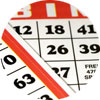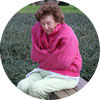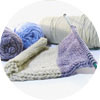 GSN-International Skills Enhancement and Education Center (ISEEC) invites all nurses to attend their workshop entitled:
GSN-International Skills Enhancement and Education Center (ISEEC) invites all nurses to attend their workshop entitled:"Infection Control in Health Care Setting / Hospital Acquired Infection (HAI) Workshop" with 8 PRC- CPE Units and International Standards
A hospital-acquired infection is usually one that first appears three days after a patient is admitted to a hospital or other health-care facility.
Infections acquired in a hospital are also called nosocomial infections
Hospital-acquired infections are usually related to a procedure or treatment used to diagnose or treat the patient's illness or injury. About 25% of these infections can be prevented by healthcare workers taking proper precautions when caring for patients.
Hospital-acquired infections can be caused by bacteria, viruses, fungi, or parasites. These microorganisms may already be present in the patient's body or may come from the environment, contaminated hospital equipment, healthcare workers, or other patients. Depending on the causal agents involved, an infection may start in any part of the body. A localized infection is limited to a specific part of the body and has local symptoms. For example, if a surgical wound in the abdomen becomes infected, the area of the wound becomes red, hot, and painful. A generalized infection is one that enters the bloodstream and causes general systemic symptoms such as fever, chills, low blood pressure, or mental confusion.
Hospital-acquired infections may develop from surgical procedures, catheters placed in the urinary tract or blood vessels, or from material from the nose or mouth that is inhaled into the lungs. The most common types of hospital-acquired infections are urinary tract infections (UTIs), pneumonia, and surgical wound infections.
Date: July 24, 2010 (9am-5pm)
Venue: Unit 502 Pacific Corporate Center 131 West Avenue Quezon City.
Ms. Grace S. Navea, RN, BSN, MBA, CPHM, Ph.D (President/CEO of
GSN ISEEC)
PURPOSE:
The purpose of infection control is to reduce the risk of health care worker exposure and infection and nosocomial (hospital-acquired) infections, which can complicate existing diseases or injuries.
OBJECTIVES:
* To educate the HCP regarding the principles of infection control.
* Identify areas within our scope of work where infection may be transmitted.
* Formulate guidelines in preventing the disease transmission.
* Endure prompt exposure management protocol and medical follow up.
For inquiries and Reservation/Registration Pls. contact the following numbers:
* Globe - 09153787964,
* Smart- 09301832876
* Sun- 09334622474
Look for: Xomai, RN
Infections acquired in a hospital are also called nosocomial infections
Hospital-acquired infections are usually related to a procedure or treatment used to diagnose or treat the patient's illness or injury. About 25% of these infections can be prevented by healthcare workers taking proper precautions when caring for patients.
Hospital-acquired infections can be caused by bacteria, viruses, fungi, or parasites. These microorganisms may already be present in the patient's body or may come from the environment, contaminated hospital equipment, healthcare workers, or other patients. Depending on the causal agents involved, an infection may start in any part of the body. A localized infection is limited to a specific part of the body and has local symptoms. For example, if a surgical wound in the abdomen becomes infected, the area of the wound becomes red, hot, and painful. A generalized infection is one that enters the bloodstream and causes general systemic symptoms such as fever, chills, low blood pressure, or mental confusion.
Hospital-acquired infections may develop from surgical procedures, catheters placed in the urinary tract or blood vessels, or from material from the nose or mouth that is inhaled into the lungs. The most common types of hospital-acquired infections are urinary tract infections (UTIs), pneumonia, and surgical wound infections.
Date: July 24, 2010 (9am-5pm)
Venue: Unit 502 Pacific Corporate Center 131 West Avenue Quezon City.
Ms. Grace S. Navea, RN, BSN, MBA, CPHM, Ph.D (President/CEO of
GSN ISEEC)
PURPOSE:
The purpose of infection control is to reduce the risk of health care worker exposure and infection and nosocomial (hospital-acquired) infections, which can complicate existing diseases or injuries.
OBJECTIVES:
* To educate the HCP regarding the principles of infection control.
* Identify areas within our scope of work where infection may be transmitted.
* Formulate guidelines in preventing the disease transmission.
* Endure prompt exposure management protocol and medical follow up.
For inquiries and Reservation/Registration Pls. contact the following numbers:
* Globe - 09153787964,
* Smart- 09301832876
* Sun- 09334622474
Look for: Xomai, RN






 One of the most common signs of Alzheimer's is memory loss, especially forgetting recently learned information. Others include forgetting important dates or events; asking for the same information over and over; relying on memory aides (e.g., reminder notes or electronic devices) or family members for things they used to handle on their own.
One of the most common signs of Alzheimer's is memory loss, especially forgetting recently learned information. Others include forgetting important dates or events; asking for the same information over and over; relying on memory aides (e.g., reminder notes or electronic devices) or family members for things they used to handle on their own.  Some people may experience changes in their ability to develop and follow a plan or work with numbers. They may have trouble following a familiar recipe or keeping track of monthly bills. They may have difficulty concentrating and take much longer to do things than they did before.
Some people may experience changes in their ability to develop and follow a plan or work with numbers. They may have trouble following a familiar recipe or keeping track of monthly bills. They may have difficulty concentrating and take much longer to do things than they did before.
 People with Alzheimer's can lose track of dates, seasons and the passage of time. They may have trouble understanding something if it is not happening immediately. Sometimes they may forget where they are or how they got there.
People with Alzheimer's can lose track of dates, seasons and the passage of time. They may have trouble understanding something if it is not happening immediately. Sometimes they may forget where they are or how they got there. 


 People with Alzheimer's may experience changes in judgment or decision-making. For example, they may use poor judgment when dealing with money, giving large amounts to telemarketers. They may pay less attention to grooming or keeping themselves clean.
People with Alzheimer's may experience changes in judgment or decision-making. For example, they may use poor judgment when dealing with money, giving large amounts to telemarketers. They may pay less attention to grooming or keeping themselves clean.  A person with Alzheimer's may start to remove themselves from hobbies, social activities, work projects or sports. They may have trouble keeping up with a favorite sports team or remembering how to complete a favorite hobby. They may also avoid being social because of the changes they have experienced.
A person with Alzheimer's may start to remove themselves from hobbies, social activities, work projects or sports. They may have trouble keeping up with a favorite sports team or remembering how to complete a favorite hobby. They may also avoid being social because of the changes they have experienced.  The mood and personalities of people with Alzheimer's can change. They can become confused, suspicious, depressed, fearful or anxious. They may be easily upset at home, at work, with friends or in places where they are out of their comfort zone.
The mood and personalities of people with Alzheimer's can change. They can become confused, suspicious, depressed, fearful or anxious. They may be easily upset at home, at work, with friends or in places where they are out of their comfort zone.